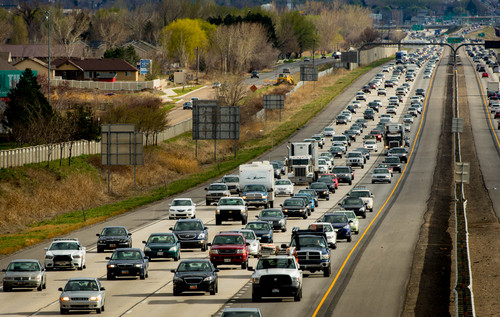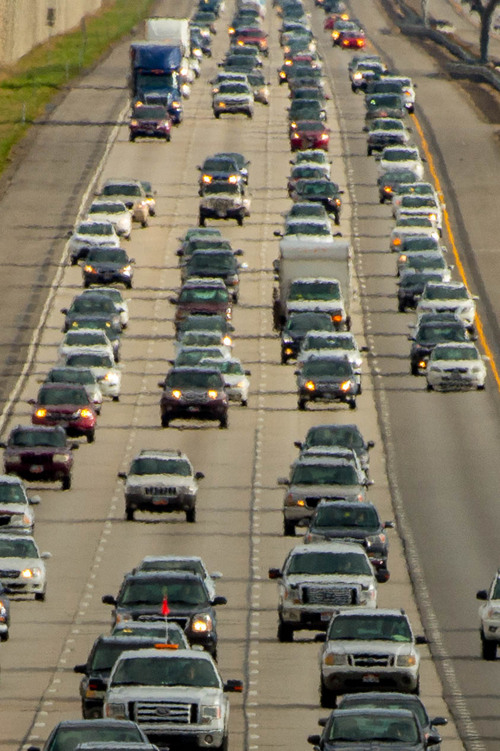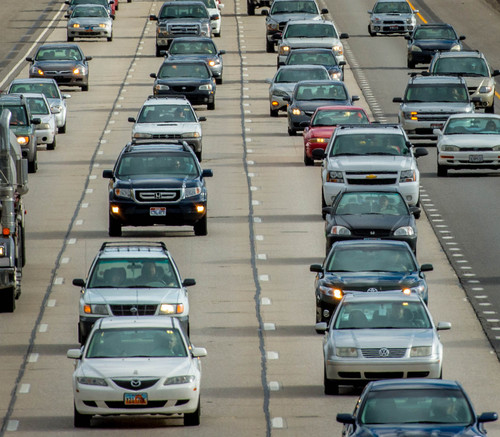This is an archived article that was published on sltrib.com in 2014, and information in the article may be outdated. It is provided only for personal research purposes and may not be reprinted.
Forcing Utah drivers to prove their citizenship and identity for a license may have seemed like torture at times during the past five years, initially causing lines with waits that averaged more than three hours.
But it has brought some results expected by lawmakers during heated immigration debates.
Since the program started in 2010, the state found that 5,923 undocumented immigrants illegally had full driver licenses, obtained largely through use of Social Security numbers they should not have had.
The new process to verify citizenship forced them to convert to a driving privilege card for noncitizens. Such privilege cards had already been available for years — and more than 35,000 undocumented immigrants in Utah now have one.
The nearly 6,000 immigrants who improperly had a full driver license "is higher than we anticipated," said Nannette Rolfe, director of the Utah Driver License Division.
"We knew there were a handful of people out there who were undocumented but had a Social Security number, so they acquired a regular license," she said. "It could possibly entitle them to benefits they shouldn't receive. They could possibly vote."
That number does not surprise Sen. Curt Bramble, R-Provo, who helped push legislation to require proof of citizenship and identity for a driver license.
"We anticipated it," Bramble said, adding that anecdotal evidence suggested it would be that high. "In some ways, it's comforting to know we were on the right track."
Bramble added that, while it's nice to clean up the system, "this doesn't address the broader problem of immigration." He said the legislation was among many steps that "are just Band-Aids to a very difficult problem."
The new verification system also caught and fixed some other problems.
Rolfe said the state found numerous other motorists — including some sex offenders — had driver licenses under assumed names to help escape their past, but were forced to revert to their given names.
"Maybe they got a license in another state, and they brought that in" and obtained a Utah permit with the assumed name. But when they had to renew by showing a birth certificate, a Social Security card or similar information, Rolfe explained, "we've been able to move them back under their given name."
And with a new photo facial-recognition program, the state identified 400 licensed drivers — and turned them over to investigators — after they tried to obtain a second license for someone else with their documents. That ranged from an older sibling seeking to help a younger one obtain ID to enter bars, to a relative trying to help an undocumented immigrant secure a full license.
"Our system is now the cleanest it has ever been," Rolfe said.
"When we were first tasked with doing this, my own personal feeling was, 'Why do we have to do this?' " Rolfe conceded. "Now that we've gotten into this and we've seen the benefit, now I say, 'Why wouldn't the state of Utah want to do this?' "
The effort has made Utah one of 20 states so far deemed to be in full compliance with the federal Real ID Act for driver licenses.
The federal government plans to require such certification before allowing use of a driver license to enter airport security (in 2016 or later) or federal bases and other installations, as soon as later this year. Residents in noncompliant states may soon need to obtain documents other than driver licenses — such as passports — for access.
"I know it was kind of a painful process," said Chris Caras, driver services bureau chief with the Utah Driver License Division, which is part of the Department of Public Safety. "But it really has benefited our ability to combat identity fraud. ... Had we not moved forward on this, the use of a Utah driver license for things as basic as getting on an airplane would have been restricted."
Almost all Utah motorists have now gone through the new system requiring them to bring a Social Security card, a birth certificate or passport — and other documents — to prove residency. Fewer than 195,000 remain to go through the process this year out of more than 2 million license holders.
Those who have been through it once are eligible to renew by mail or the Internet. About 45 percent of those eligible have chosen to do so in recent months, Rolfe said. Most driver licenses are good for five years. Utah rules now require an in-office renewal only once every 10 years.
Besides cleaning up identity and citizenship problems, Rolfe said, her division has made strides in recent years to cut wait times for licenses.
While waits averaged more than three hours when the verification process began, she said wait times to arrive at a window now average 9 minutes statewide and service time once at a window averages about 7 minutes.
Rolfe noted that is an average, and waits can be much longer or shorter depending on the office and time of day. Utahns with appointments or who go to rural offices often have no wait.
Those at-large urban offices could wait longer, especially after school lets out or on Mondays or Fridays, which tend to be busier. She said visiting offices when they open usually brings shorter waits.
Wait times dropped as the division started allowing those appointments. Many motorists now enter with virtually no waiting.
The division also launched a call center to handle routine inquiries without forcing a wait in line, and the public began paying more attention to what documents they needed after horror stories about the early initial waits.
Rolfe said the division started giving temporary licenses to allow motorists "to get their driving privilege for six months, get the necessary documents and then come in and finalize" their permits — instead of making perhaps several trips or losing their driving privileges amid a confusion over paperwork.
"It's been a painful process," Caras said, "but I think the citizens have gained the benefit. In the long run, it's been a benefit for our records."







